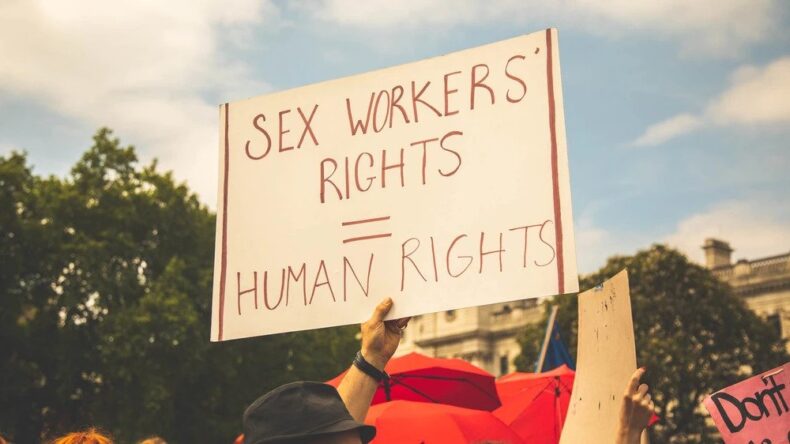NEW DELHI: On 19 May, the Supreme Court of India ordered all states and Union Territories to treat sex workers with respect. The apex court said, “It need not be gainsaid that notwithstanding the profession, every individual in this country has a right to a dignified life under Article 21 of the Constitution of India.”
A Supreme Court bench composed of Justices L Nageswara Rao, BR Gavai, and AS Bopanna was providing directives based on the recommendations of a court-appointed panel when it remarked that all forces were obligated by the Immoral Traffic (Prevention) Act of 1956 should keep the Constitution in mind.
According to the bench, the police’s stance toward sex workers is frequently “brutal and aggressive.” Later in the verdict, the court stated, “Police should treat all sex workers with respect and not verbally or physically abuse them, subject them to violence, or pressure them into engaging in sexual behaviour.”
In addition, the Supreme Court ruled that all state and territorial administrations must comply with the following panel recommendations:
- In line with Section 357C (treatment of victims) of the Code of Criminal Procedure (treatment of victims), any sex worker who is a victim of sexual assault shall be given all available facilities, including emergency medical aid (CrPC).
- The Press Council of India should provide guidelines on the protection of the identity of sex workers during police activities and rescue missions. The council should instruct the media not to print or broadcast photographs that disclose their identities. In addition, the newly enacted Section 354C of the Indian Penal Code, which makes voyeurism a criminal offence, should be aggressively enforced against electronic media, according to the panel.
- The health and safety precautions taken by sex workers (e.g., the use of condoms) must not be regarded as criminal acts or considered proof of criminal activity.
- State governments must conduct a census of shelter homes so that cases of women held against their will as adults can be investigated and processed in a timely way.
- The National Legal Services Authority, the State Legal Services Authority, and the District Legal Services Authority should conduct workshops to educate sex workers about their rights in relation to the legality of sex work, the rights and responsibilities of the police, and what is prohibited by law. In addition, sexual labourers can be educated on how to contact the legal system to assert their rights and avoid unwarranted harassment by traffickers or police.
- Even though the panel issued these suggestions in 2016, in the lack of formal law on the subject, the court asked all levels of administration to comply with the recommendations until an executive order is in effect.
The federal government has six weeks to react to the highlighted criteria, and the issue is scheduled to be heard on July 27, 2022.
In the meanwhile, the Union administration has raised doubts about key ideas made by the panel, including that they are entitled to equal legal protection and that criminal law must be implemented based on “age and permission.”













